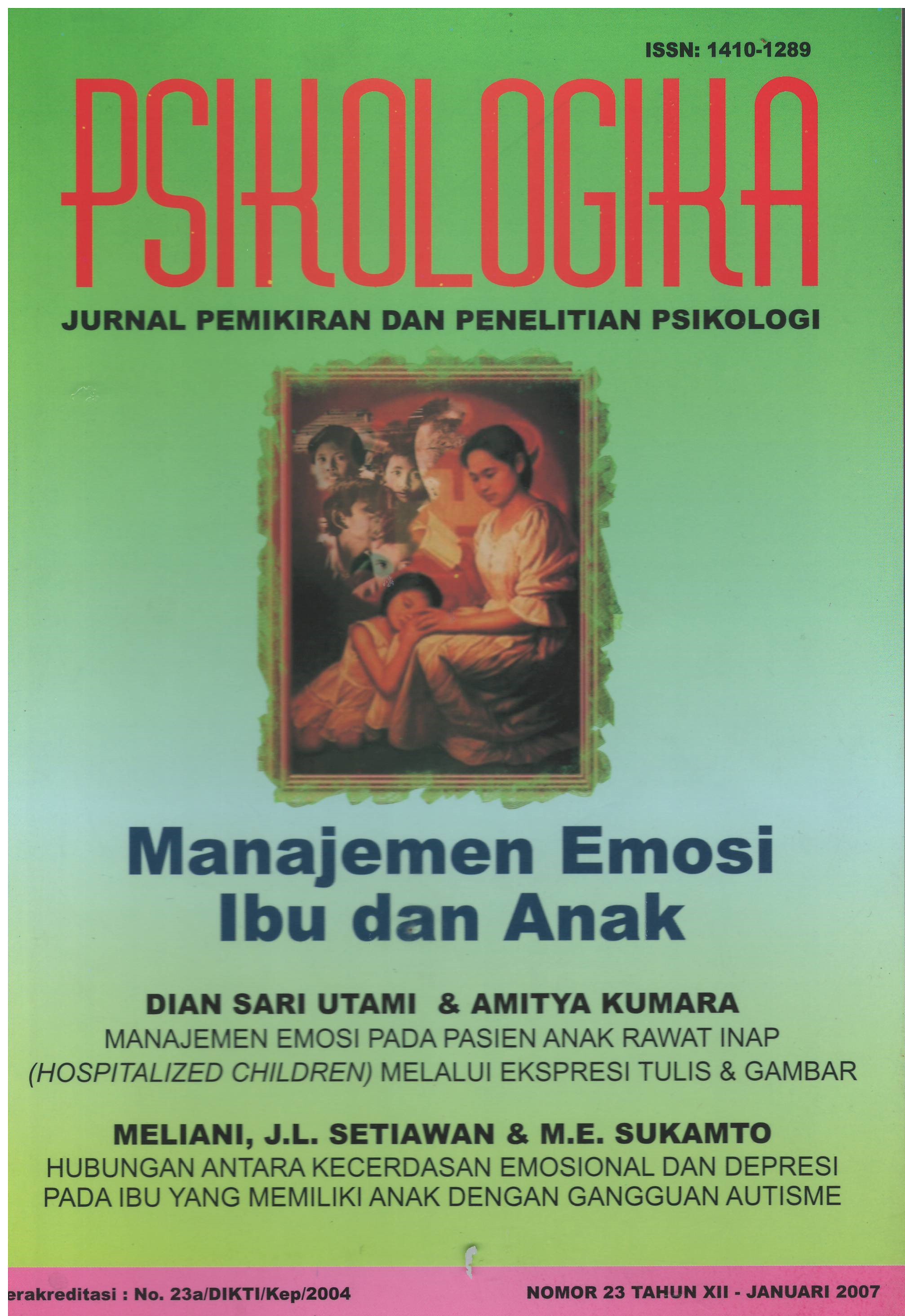Main Article Content
Abstract
Children are very vulnerable with their bodies, especially when they are ill. This condition is so uncomfortable for children to get ill, moreover when they have to be hospitalized. Children usually have chronic illness and should be hospitalized for long time. This condition would affect not only their bodies, but their minds and emotions. Hospitalized would make children getting stress or distress and need to cope. One way to cope is managing their emotions through writing and drawing as a method to express their emotions. This study used the book as a media to express their emotion called “Pelangi Hatikuâ€.
         The qualitative method using in this study is case study. The participants who involved in this case study were 3 children of 8-12 years-old from 2 general hospitals in Yogyakarta. They were interviewed and observed regarding to their steps of managing emotions using “Pelangi Hatikuâ€.
         It was found that managing emotions consisted of four steps, they are spontaneously, event thinking deeply, involving or withdrawal from emotions reflectively, reducing negative emotions by increasing positive emotions. Furthermore, the Emotional Detections Scale from pre test and post test showed the score decreasing in which means that there was increasing in their abilities to manage their emotions.
Â
Keywords    :    emotional management, writing, drawing
Article Details
Authors who publish with this journal agree to the following terms:
- Authors retain copyright and grant the journal right of first publication with the work simultaneously licensed under a Creative Commons Attribution-ShareAlike 4.0 International License that allows others to share the work with an acknowledgment of the work's authorship and initial publication in this journal.
- Authors are able to enter into separate, additional contractual arrangements for the non-exclusive distribution of the journal's published version of the work (e.g., post it to an institutional repository or publish it in a book), with an acknowledgment of its initial publication in this journal.
- Authors are permitted and encouraged to post their work online (e.g., in institutional repositories or on their website) prior to and during the submission process, as it can lead to productive exchanges, as well as earlier and greater citation of published work (See The Effect of Open Access).
